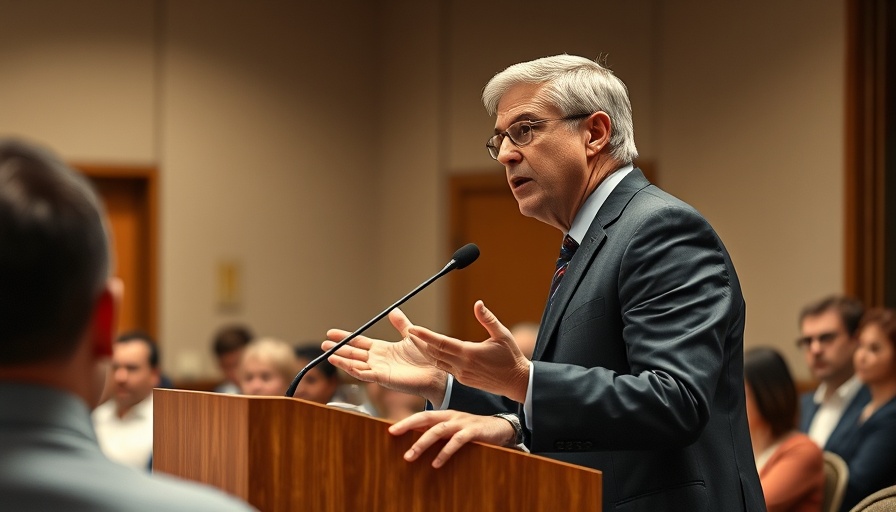
GOP's $3.1 Billion Road Funding Proposal: A Game Changer for Michigan?
The Michigan House's recent approval of a $3.1 billion road funding proposal marks a significant moment in the state's legislative landscape. Spearheaded by Republican leaders, this plan aims to address the pressing issue of deteriorating road infrastructure without imposing new taxes. However, it raises critical questions about the sustainability and potential repercussions on other state programs.
Balancing Act: Pros and Cons of the GOP Plan
Republicans, led by House Speaker Matt Hall, argue that the proposal represents a "real, long-term solution" for the state’s roads. They emphasize that the plan avoids new taxes while significantly investing in crucial road repairs. State Rep. Pat Outman highlighted that this funding would impact communities most reliant on sound infrastructure, aiming to enhance daily commutes and overall safety.
On the other side of the aisle, Democrats are sounding alarms about the potential fallout from the package's proposed budget cuts. Key critics, such as House minority leader Ranjeev Puri, contend that the GOP's approach could lead to reduced funding for critical services, including education and healthcare. This tension underscores a broader struggle for balance amid competing priorities.
The Stakes Are High: Budget Cuts Predictably Looming
According to various reports, the funding structure of the GOP's proposal necessitates budget cuts to vital programs. While nonpartisan experts forecast that these cuts could destabilize other sectors of the government, Republicans maintain that the plan is strategically sound. They assert that prioritizing road funding without raising taxes addresses immediate infrastructure needs while protecting taxpayers. This dichotomy begs the question: will short-term gains in road funding yield long-term sacrifices in public welfare?
Where Is the Democratic Counter Proposal?
As Democrats critique the GOP plan, many are left wondering why there is no competing proposal on the table from the Senate Democrats. Despite having the opportunity to provide alternative solutions, they have yet to outline their specific road funding proposals, aside from a vague outline from Governor Gretchen Whitmer earlier this year. Missing from the conversation is a cohesive plan from the Democrats, further complicating bipartisan negotiations.
This absence from the discussion challenges Democrats to articulate their vision for road maintenance, as their silence could lead to a perception of disengagement in solving one of Michigan’s most pressing issues.
Future Negotiations: The Road Ahead
The passage of the House's plan means that negotiations between the two factions are imminent. Senate Democrats, who control the state Senate, will need to engage meaningfully with their Republican counterparts and Governor Whitmer to develop a comprehensive strategy that not only addresses road funding but does so without dramatically impacting other public services.
As the state gears up for these talks, many are keen to see whether practical solutions can emerge that satisfy both fiscal responsibility and the urgent need for infrastructure repair. With public safety at stake, it's crucial for lawmakers to decipher between expedient fixes and sustainable infrastructure practices.
Common Misconceptions: Understanding the Debate
One common misconception surrounding the funding debate is that no new taxes means an overall benefit to taxpayers. While this seems favorable, the looming budget cuts could negate that benefit by undermining support for essential services. This highlights the complex nature of state budgeting, where every dollar allocated has ramifications elsewhere in the state’s economy.
In a political landscape that often polarizes opinions, it's essential for constituents to recognize how funding decisions impact their everyday lives, beyond the roadways.
Your Voice Matters: Stay Informed
The road ahead for Michigan's infrastructure is uncertain, but informed citizens can help shape legislative decisions by voicing their concerns and engaging with local representatives. Understanding the intricacies of the proposed initiatives enables Michiganders to advocate for sound policies that promote both infrastructure and public welfare. Stay connected to local news channels for updates during this critical legislative session.
 Add Row
Add Row  Add
Add 




 Add Row
Add Row  Add
Add 

Write A Comment